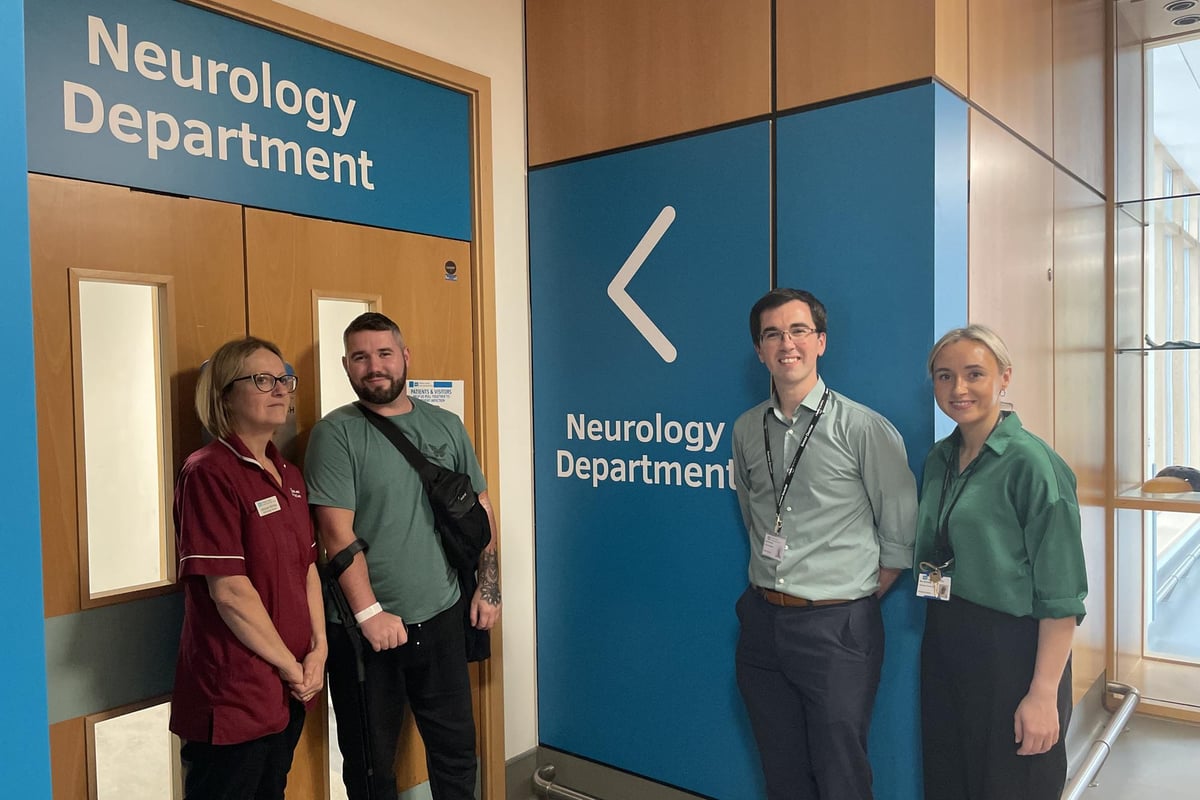Health
Altnagelvin Hospital Launches Genetic Treatment for MND

Altnagelvin Hospital in Northern Ireland has become the first medical facility in the region to offer a genetic treatment for Motor Neurone Disease (MND) through an innovative new drug called Tofersen. This development marks a significant advancement in the fight against this rare and debilitating disease.
The Western Health and Social Care Trust announced the introduction of Tofersen, which is designed to target a specific genetic mutation linked to MND. This treatment is expected to offer hope to patients who have been diagnosed with this condition, which affects the motor neurons in the brain and spinal cord, leading to muscle weakness and atrophy.
Tofersen has undergone extensive clinical trials, demonstrating its potential to slow the progression of the disease in individuals with the genetic mutation known as SOD1. The drug works by reducing the levels of toxic proteins produced by this mutation, thereby providing a new therapeutic approach to managing MND.
Significance of the Treatment
The administration of Tofersen at Altnagelvin Hospital represents a critical milestone for healthcare in Northern Ireland. According to Dr. John McCaffrey, the lead consultant neurologist at the hospital, “This treatment could transform the lives of patients with MND in our region. The ability to provide this cutting-edge therapy locally ensures that more individuals can access it without the need to travel abroad.”
Patients with MND often face challenges in obtaining specialized treatments, particularly for rare forms of the disease. The introduction of Tofersen not only enhances treatment options but also reinforces the commitment of Western Health to improving patient care and outcomes.
The drug was approved by the relevant health authorities after rigorous testing and evaluation. With a growing number of patients diagnosed with MND, this new treatment could have a profound impact on public health in the area.
Future Implications
As Tofersen becomes available, healthcare providers are closely monitoring its effects on patients. The hope is that this treatment will pave the way for additional research into genetic therapies for other forms of MND and neurological disorders.
Health officials emphasize the importance of early diagnosis and intervention. Patients are encouraged to seek medical advice if they experience symptoms associated with MND, such as muscle weakness, difficulty speaking, or swallowing issues.
The introduction of Tofersen at Altnagelvin Hospital not only signifies a breakthrough in treating MND but also highlights the potential for future advancements in genetic medicine. As research continues, the healthcare community remains optimistic about the possibilities that lie ahead for patients suffering from this challenging condition.
In summary, the availability of Tofersen at Altnagelvin Hospital marks a pivotal moment in the treatment of Motor Neurone Disease, offering renewed hope to patients and their families in Northern Ireland and beyond.
-

 Top Stories3 months ago
Top Stories3 months agoTributes Surge for 9-Year-Old Leon Briody After Cancer Battle
-

 Entertainment4 months ago
Entertainment4 months agoAimee Osbourne Joins Family for Emotional Tribute to Ozzy
-

 Politics4 months ago
Politics4 months agoDanny Healy-Rae Considers Complaint After Altercation with Garda
-

 Top Stories4 months ago
Top Stories4 months agoIreland Enjoys Summer Heat as Hurricane Erin Approaches Atlantic
-

 World5 months ago
World5 months agoHawaii Commemorates 80 Years Since Hiroshima Bombing with Ceremony
-

 Top Stories3 months ago
Top Stories3 months agoNewcastle West Woman Patricia Foley Found Safe After Urgent Search
-

 Top Stories5 months ago
Top Stories5 months agoFianna Fáil TDs Urgently Consider Maire Geoghegan-Quinn for Presidency
-

 World5 months ago
World5 months agoCouple Convicted of Murdering Two-Year-Old Grandson in Wales
-

 World5 months ago
World5 months agoGaza Aid Distribution Tragedy: 20 Killed Amid Ongoing Violence
-

 World5 months ago
World5 months agoAristocrat Constance Marten and Partner Convicted of Infant Murder
-

 Top Stories4 months ago
Top Stories4 months agoClimbing Errigal: A Must-Do Summer Adventure in Donegal
-

 Top Stories4 months ago
Top Stories4 months agoHike Donegal’s Errigal Mountain NOW for Unforgettable Summer Views









